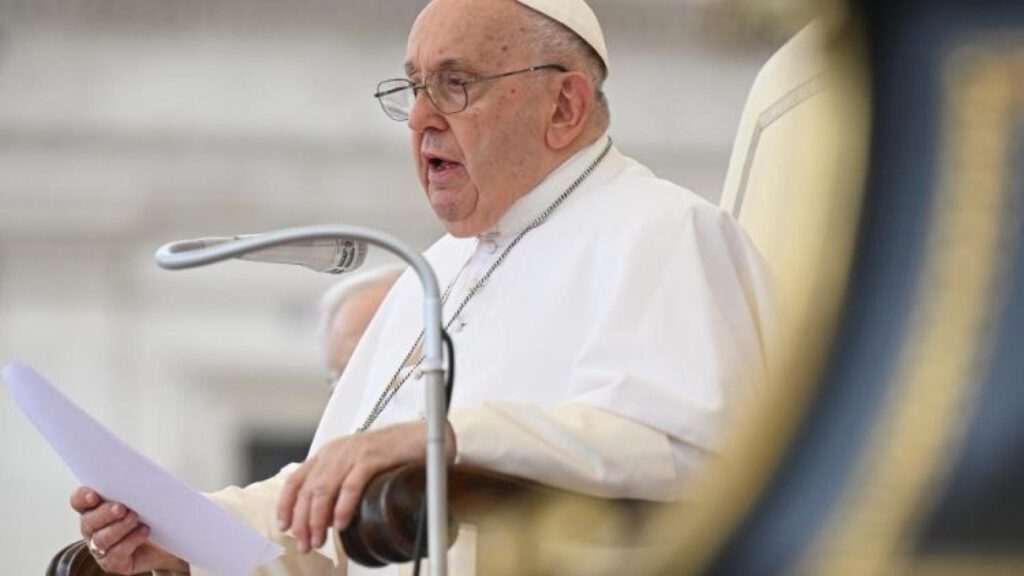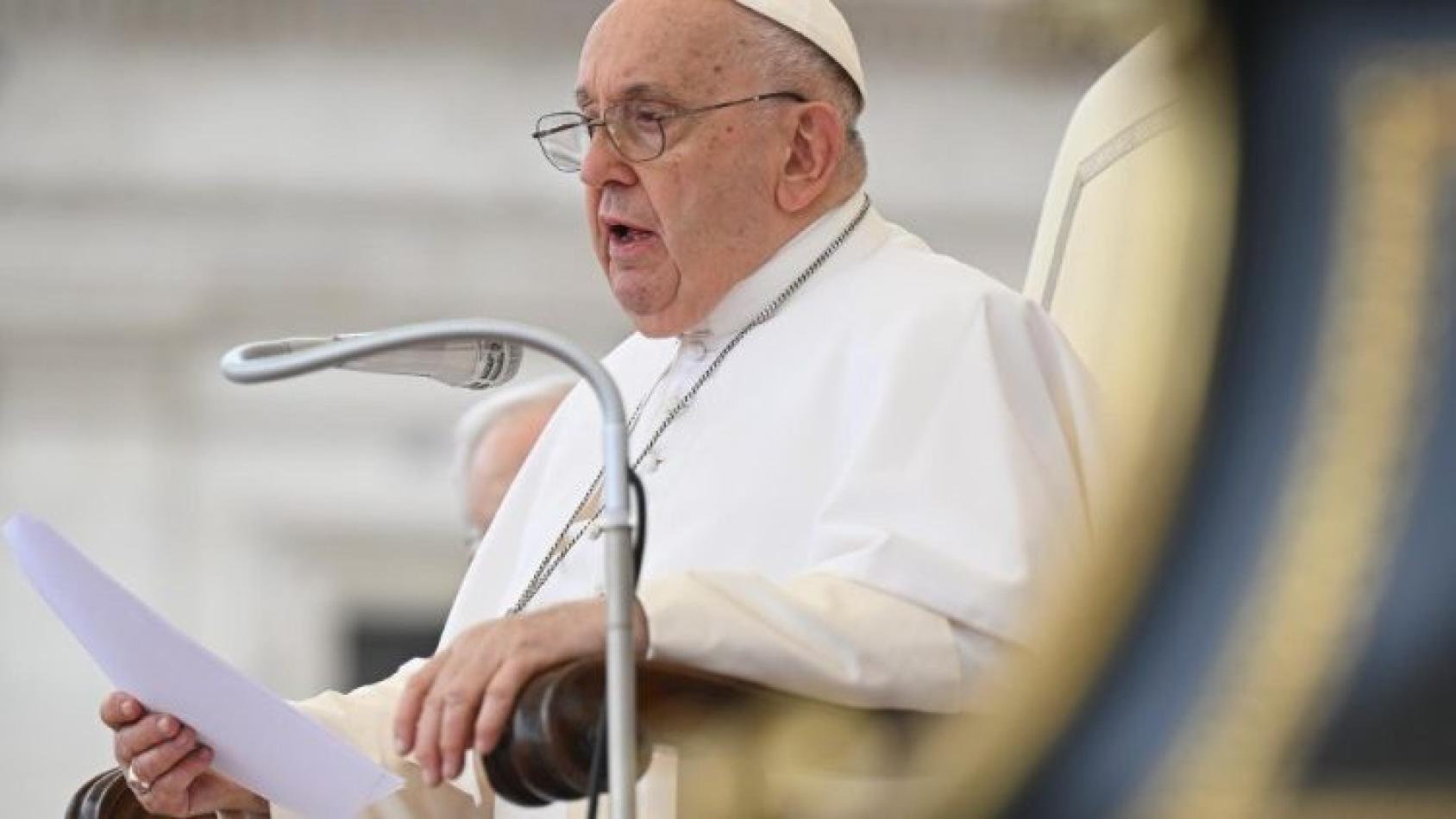Here is the translation of Pope Francis’ speech today, with the video in Italian.

Dear brothers and sisters, good morning! In our catechetical journey on the evangelizing passion, we dwell today on the witness of St. Daniele Comboni. He was an apostle full of zeal for Africa. Of those peoples he wrote: “they have taken possession of my heart that lives only for them” (Writings, 941), “I will die with Africa on my lips” (Writings, 1441).
And to them he addressed himself thus, “the happiest day of my life will be when I can give my life for you” (Writings, 3159). This is the expression of a person in love with God and the brothers he served in mission, about whom he did not tire of reminding them that “Jesus Christ suffered and died for them also” (Writings, 2499; 4801).
He affirmed this in a context marked by the horror of slavery, which he witnessed. Slavery “cosifies” man, whose value is reduced to being useful to someone or something. But Jesus, God made man, elevated the dignity of every human being and exposed the falsehood of slavery. Comboni, in the light of Christ, became aware of the evil of slavery; he understood, moreover, that social slavery is rooted in a deeper slavery, that of the heart, that of sin, from which the Lord delivers us. As Christians, therefore, we are called to fight against all forms of slavery. Unfortunately, however, slavery, as well as colonialism, is not a thing of the past. In the Africa so beloved by Comboni, today torn by many conflicts, “after the political one, an “economic colonialism” has been unleashed (…), equally enslaving (…). It is a drama before which the most economically advanced world often closes its eyes, ears and mouth.” I therefore renew my appeal, “Stop suffocating Africa: it is not a mine to be exploited or a soil to be plundered” (Meeting with Authorities, Kinshasa, January 31, 2023).
Let us return to the story of St. Daniel. After spending an initial period in Africa, he had to leave the mission for health reasons. Too many missionaries had died after contracting diseases, complicated by the lack of knowledge of the local reality. However, if others were leaving Africa, not so Comboni. After a time of discernment, he sensed that the Lord was inspiring him with a new way of evangelization, which he summed up in these words, “Save Africa with Africa” (Writings, 2741f). It is a powerful insight that helped renew missionary efforts: the people evangelized were not just “objects” but “subjects” of the mission. St. Daniel wished to make all Christians protagonists of the evangelizing action. With this spirit he thought and acted in an integral way, involving the local clergy and promoting the lay service of catechists. He also conceived in this way human development, caring for the arts and professions, fostering the role of the family and women in the transformation of culture and society. How important it is, even today, to advance faith and human development from within mission contexts, rather than transplanting external models or limiting ourselves to sterile welfarism!
Comboni’s great missionary passion, however, was not primarily the result of human endeavor: he was not driven by his courage or motivated only by important values, such as freedom, justice and peace; his zeal was born out of the joy of the Gospel, drew on the love of Christ and led to love for Christ! St. Daniel wrote, “A mission as arduous and laborious as ours cannot live by patina, by crooked-necked subjects full of selfishness and self, who do not care as they should for the health and conversion of souls.” He added, “one must kindle them with charity, which has its source from God, and from the love of Christ; and when one really loves Christ, then deprivations, sufferings and martyrdom are sweetnesses” (Writings, 6656). His desire was to see ardent, joyful, committed missionaries: missionaries, he wrote, “holy and capable. […] First: holy, that is, alien to sin and humble. But this is not enough: it takes charity that makes the subjects capable” (Writings, 6655). The source of missionary capacity, therefore, for Comboni, is charity, particularly the zeal to make others’ sufferings his own, to feel them on his own skin and to know how to alleviate them, as good sires of humanity.
His evangelizing passion, moreover, never led him to act as a soloist, but always in communion, in the Church. “I have but one life to consecrate to the health of those souls,” he wrote, “I wish I had a thousand to consume for that purpose” (Writings, 2271). One life or a thousand lives: who are we alone with our short lives, if it is not the whole Church doing mission? What is the zeal of our work, Comboni seems to ask, if it is not ecclesial?
Brothers and sisters, St. Daniel testifies the love of the Good Shepherd, who goes out to seek the lost and gives his life for the flock. His zeal was energetic and prophetic in opposing indifference and exclusion. In his letters he heartily recalled his beloved Church, which for too long had forgotten Africa. Comboni’s dream is a Church that makes common cause with the crucified of history, to experience the resurrection with them. His witness seems to repeat to all of us, men and women of the Church, “Do not forget the poor, love them, for in them is present Jesus crucified, waiting to rise again.”





May we -Africans- become really protagonists of our own liberation.